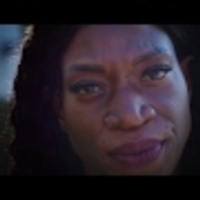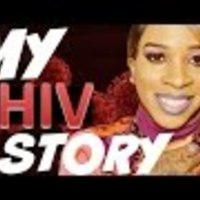Personal Stories
Although the HIV/AIDS has been a pandemic since the early 1980s, up until the early to mid 90s there has been a lack of resources and programs that relate to gender-identity, and even less resources for HIV/AIDs pertaining to transgender people; which in turn makes their stories often go unheard. Here is a collective of various African-American transgender women sharing their stories in the fight with and against HIV/AIDS through interviews, spoken word, and storytelling. This is a way for these women to release their stories, without judgement. Like most of the stories encountered about transgender women and their infections, have a few occurrences in common. Some of these women were infected either because of sex work, intimate relationships or other ways they didn’t feel compelled to discuss. However, there isn’t any sadness or pity that is projected by these women. Speaking about the moment they received the news and the overwhelming feeling that it couldn’t happen to them. “I’ll be fine” is what one woman says when she was told her status. After the emotions have settled down, what happens next?As the statistics page shows, African American transgender women aren’t really on the spectrum when it comes to HIV/AIDS healthcare. Historically, they have been grouped together with gay men. With their own needs and healthcare questions, transgender women need to have a space for where they feel comfortable and safe. There is little to no information for women to find out what is next for them. Who to speak to, where to get medications and how to afford it, what happens in the immediate future? For many, a positive HIV status means no longer getting genital reassignment surgery (should they want it). This can impede on their mental health which in turn can be channeled into dangerous behavior and the risk of infecting others becomes higher. While the Affordable Care Act does cover HIV medications and some hormone replacement therapy, specific drugs that are prescribed per an individual may not be. In recent times, there has been more avenues for transgender women and transgender women of color to have a platform and speak against stereotypes or where they fit in the narrative. Transgender women no longer feel a need to hide in the shadows, but instead be pioneers in the fight for their lives. Support groups can be an immense shoulder to unburden themselves, surrounded by other individuals who may be in the same headspace as them or have pushed through their thoughts and gone into action. Support groups can give answers to questions that may be uncomfortable to ask to a healthcare provider. Things like “dos and don’ts” of where to get help can make this process so much easier. While there isn’t a cure for HIV, it is no longer a death sentence. If taken correctly, the women in these videos will live long lives. HIV should no longer hold anyone back from being themselves. To stay knowledge like woman said is the way to staying healthy. Know yourself, your body and when to ask questions. These transgender women don’t use their positive HIV status as a deterrent, but just another way to start a conversation.
I'm Black, I'm Trans, I'm HIV-Positive and I'm OK
CDC's HIV Treatment interview- Whitney

An HIV-Positive Transgender Woman Reads a Powerful Letter to Her Body | The Scene

Against the odds: transgender, black and HIV-positive

Storytime | How I Caught HIV

Frameline Voices - Pay it No Mind: The Life and Times of Marsha P. Johnson

